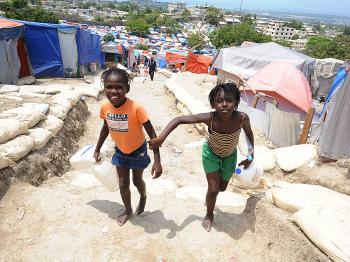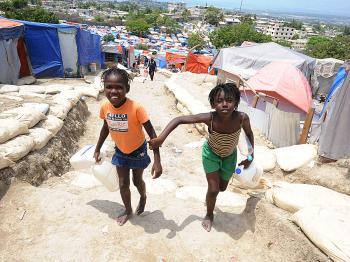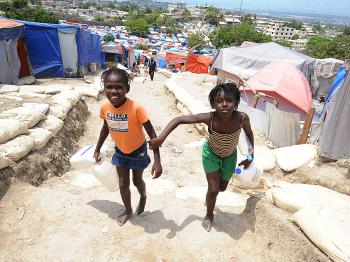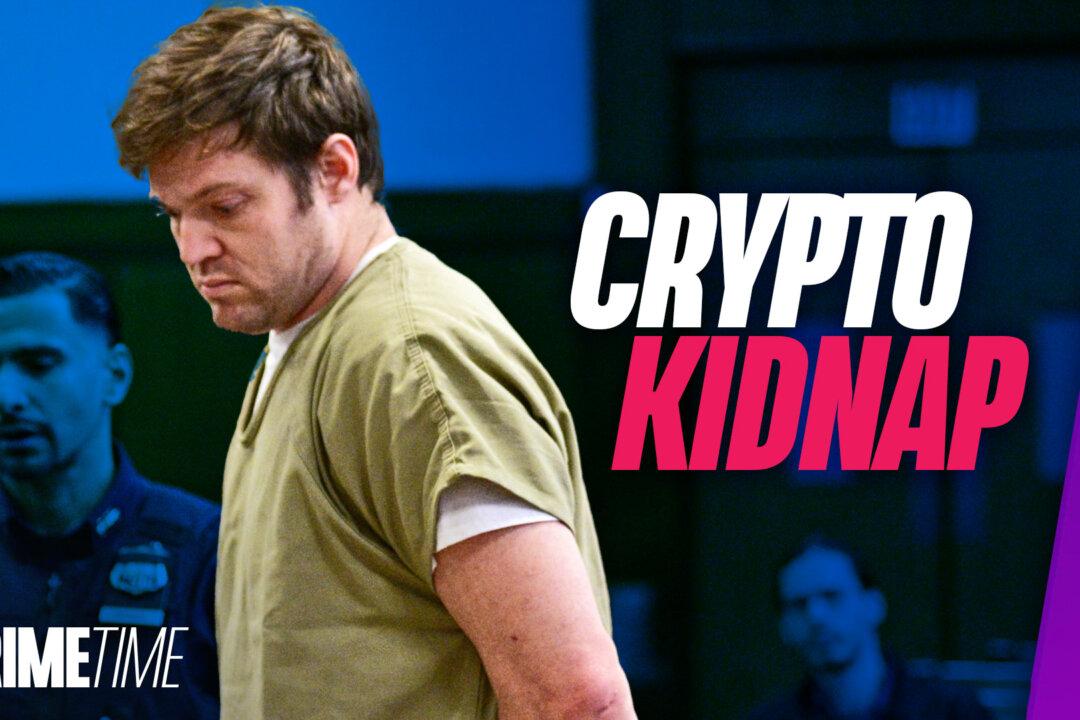NEW YORK—The moment he heard that a catastrophic earthquake had reduced his hometown to rubble, Haitian-born music producer Mike Jean says his heart stopped—he knew the situation in Haiti was desperate.
Stunned by the images of Port-au-Prince on TV, he urgently tried to get a hold of his parents in Carrefour, a town just outside of the capital and at the epicenter of the quake—his spirits sank as nobody picked up the ringing phone.
Finally, some days later, a close friend called with news from the center of the apocalypse. The friend’s entire family was gone—mother, father, brother, and sister. Carrefour was in chaos, so many dead, many still dying, and everything in ruins with no aid in sight. His friend had no specific information about Mike’s parents, but both assumed the worst because they lived only a block away from his friend’s shattered home.
Mike was in shock. For the next two weeks, his eyes were moist with tears. But devastated as Haiti was, he also saw a spark of hope. He realized that this could be his country’s chance, her best opportunity for a better future. “We can’t cry for yesterday, we need to think about now and the future,” Mike said.
Already a dedicated humanitarian, Mike saw his life and his success as leading to this moment. “My dream, what I see here and I have been given, is the opportunity to be who I am.”
He has taken it on as a mission to help something good emerge from the rubble.
Mike Jean-Baptiste, a.k.a. Mikey Mike, was born in Carrefour, a city of 400,000 (before the quake), just 10 miles southwest of the capital of Port-au-Prince. By his late teens, Mike had already established himself as a music producer in Haiti, thriving at the heart of the international music scene.
In 1999 he left home, as the cliché goes, to seek his fortunes in America—and found them. By 2001, the 23-year-old was CEO of his own record label, Moonlight Entertainment.
In step with building his music career, Mike has also applied himself to humanitarian work. Over the past decade he has helped raise money for the One Heart Foundation, UNICEF, and Give Them A Hand Foundation; he worked with Haitian-born supermodel Tyrone Edmond on a calendar to raise funds for 9/11 relief; and he produced and hosted a charity art show with Slade Morrison, daughter of Nobel Prize and Pulitzer Prize-winning author Toni Morrison.
Stunned by the images of Port-au-Prince on TV, he urgently tried to get a hold of his parents in Carrefour, a town just outside of the capital and at the epicenter of the quake—his spirits sank as nobody picked up the ringing phone.
Finally, some days later, a close friend called with news from the center of the apocalypse. The friend’s entire family was gone—mother, father, brother, and sister. Carrefour was in chaos, so many dead, many still dying, and everything in ruins with no aid in sight. His friend had no specific information about Mike’s parents, but both assumed the worst because they lived only a block away from his friend’s shattered home.
Mike was in shock. For the next two weeks, his eyes were moist with tears. But devastated as Haiti was, he also saw a spark of hope. He realized that this could be his country’s chance, her best opportunity for a better future. “We can’t cry for yesterday, we need to think about now and the future,” Mike said.
Already a dedicated humanitarian, Mike saw his life and his success as leading to this moment. “My dream, what I see here and I have been given, is the opportunity to be who I am.”
He has taken it on as a mission to help something good emerge from the rubble.
Marrying Music and Humanitarianism
Mike Jean-Baptiste, a.k.a. Mikey Mike, was born in Carrefour, a city of 400,000 (before the quake), just 10 miles southwest of the capital of Port-au-Prince. By his late teens, Mike had already established himself as a music producer in Haiti, thriving at the heart of the international music scene.
In 1999 he left home, as the cliché goes, to seek his fortunes in America—and found them. By 2001, the 23-year-old was CEO of his own record label, Moonlight Entertainment.
In step with building his music career, Mike has also applied himself to humanitarian work. Over the past decade he has helped raise money for the One Heart Foundation, UNICEF, and Give Them A Hand Foundation; he worked with Haitian-born supermodel Tyrone Edmond on a calendar to raise funds for 9/11 relief; and he produced and hosted a charity art show with Slade Morrison, daughter of Nobel Prize and Pulitzer Prize-winning author Toni Morrison.







